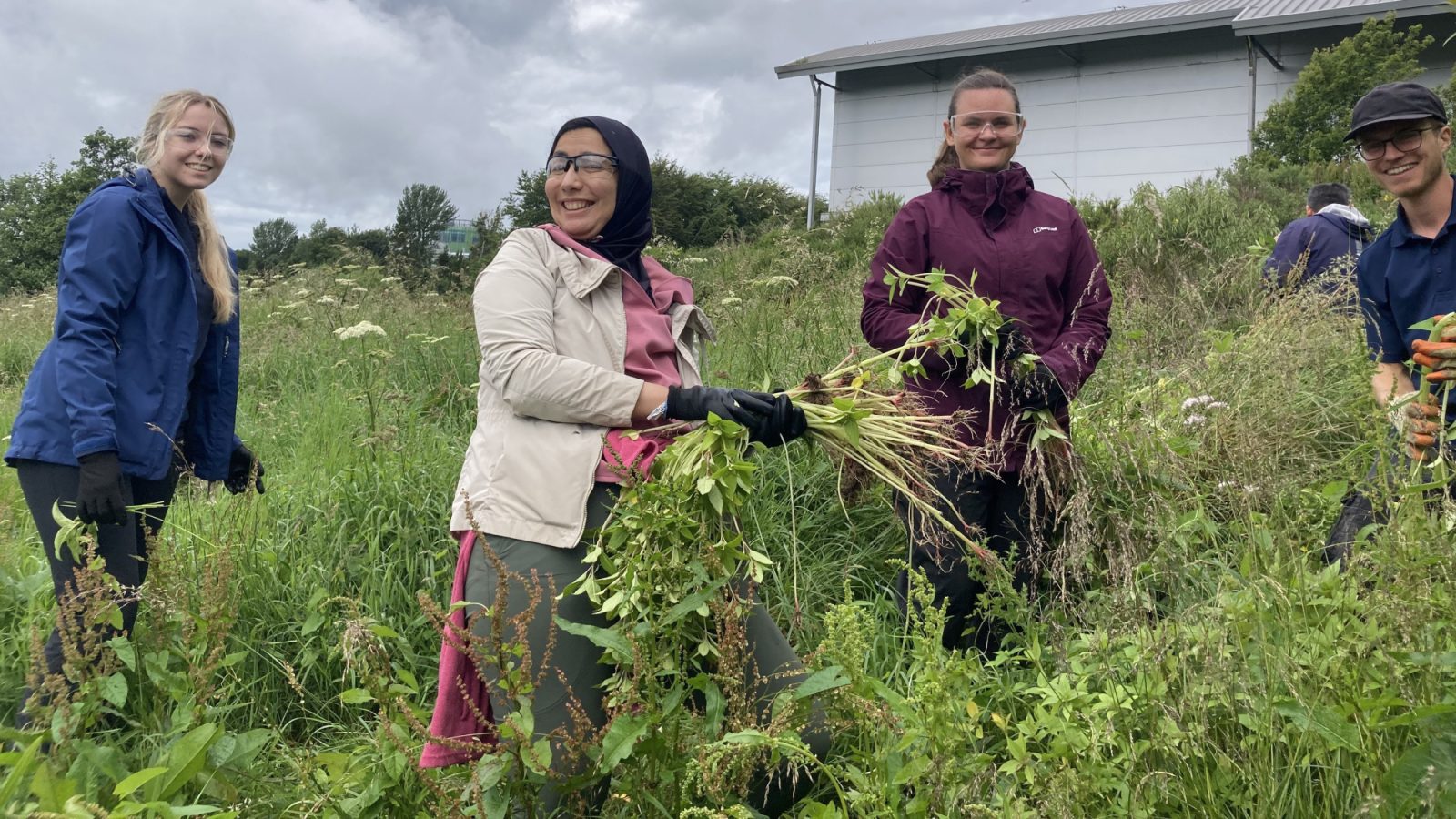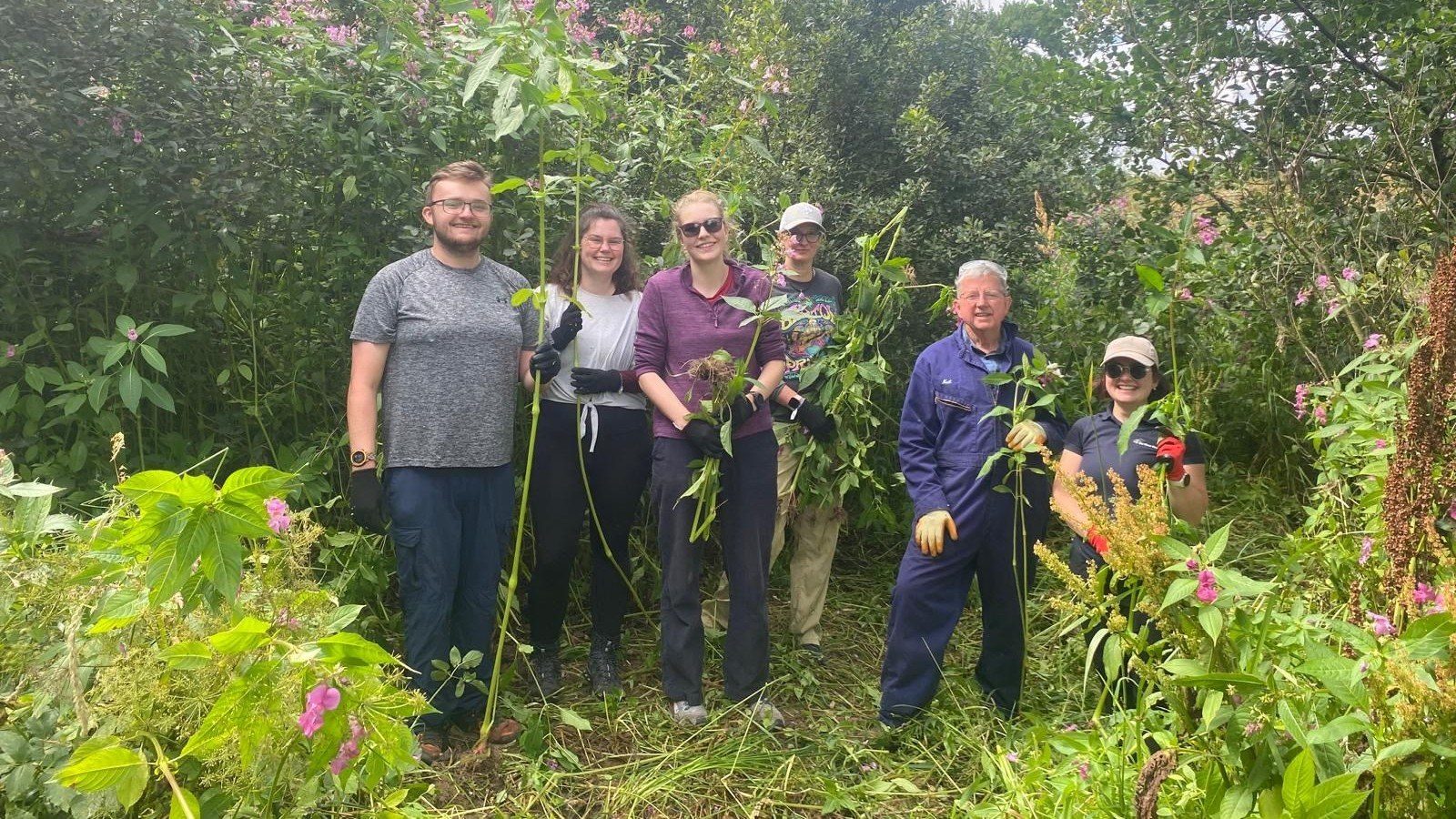River Dee Trust volunteers have been instrumental in tackling the challenge of invasive plants on the Dee and the Don this summer.
Corporate teams from Serica, bp and Ithaca got to work on the banks of the Dee at Culter, Garthdee, Inverdee and at RGU’s campus, while our open volunteer day took place on the Don at Inverurie.

Keilidh Ewan, the Trust’s Education Officer explains why it is important to remove Himalayan balsam, an attractive yet non-native invasive species from our riverbanks.
“Himalayan balsam spreads prolifically along the lower Dee and the Don. It crowds out many native plant species and is very attractive to insects which has a negative impact on the pollination of native plants that better sustain wildlife.
"It is actually very easy to remove because of its incredibly shallow root system. While this enables our volunteers to remove large areas of the plant (it can get quite competitive), it is this root system that is detrimental to our riverbanks, offering no stability and making the riverbank susceptible to damage and erosion.”

Claire Fleming, Engagement Officer at the Trust continues: “The work put in by our volunteers is visible year on year as we reduce the spread of Himalayan balsam downstream. Teams from bp, Serica and Ithaca have all volunteered previously, and it has been great for repeat volunteers to see the positive impact their work is having.
"This year, the early summer heatwave condensed our window to remove balsam, with the plants maturing earlier than in previous years. Balsam needs to be pulled before it goes to seed – spreading far and wide thanks to its explosive seed capsules.
"As always, our supporters and River Dee Guardians were ready and willing to help and have cleared sizeable areas of riverbank.”

The Trust’s work to remove Himalayan balsam and other invasive non-native plants, including the notorious giant hogweed, Japanese knotweed and the fantastically named American skunk cabbage is made possible thanks to support from Scottish Government’s Nature Restoration Fund as part of the Scottish Invasive Species Initiative (SISI).
To learn more about how your organisation can become a River Dee Guardian and enable world-leading conservation on your doorstep, contact claire@riverdee.org.